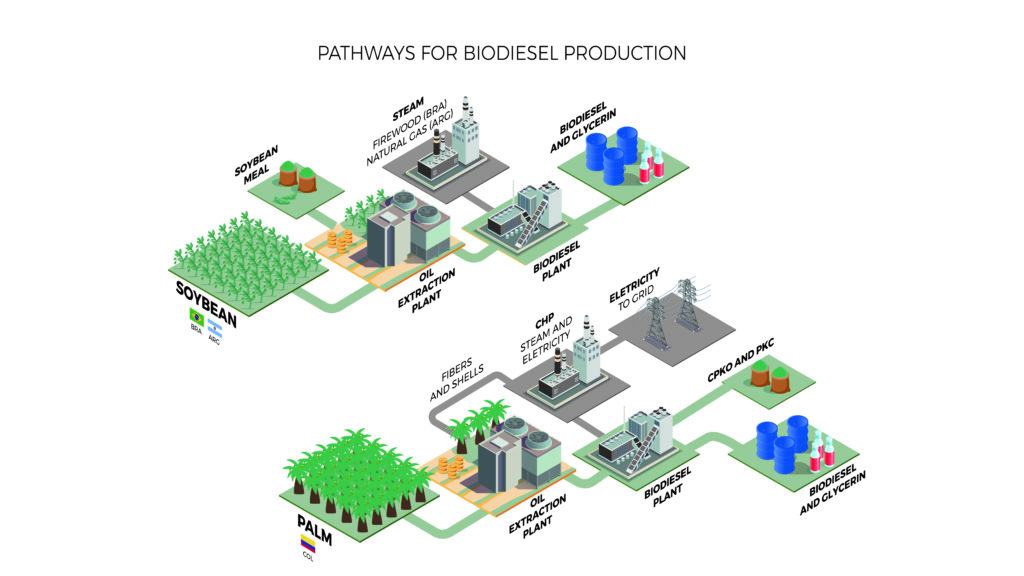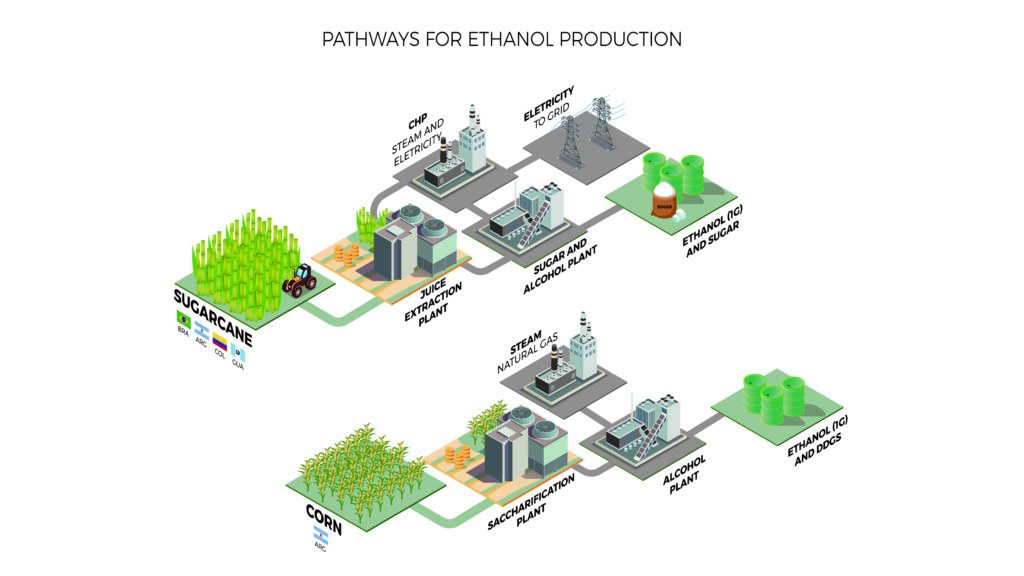Sustainability assessment of ethanol and biodiesel production in Argentina, Brazil, Colombia, and Guatemala
Available at: https://www.sciencedirect.com/science/article/pii/S1364032122009005
This study assesses the production, land use, environmental impacts, and energy balance associated with ethanol and biodiesel production in Argentina, Brazil, Colombia, and Guatemala. The official data for each country are used to quantify the biofuel production and land required for their production. To evaluate the environmental impacts, a cradle-to-gate attributional life cycle assessment (ALCA) was performed.
These countries, considered developing economies, in 2019 achieved a production of 46 billion liters liters, equivalent to 97% of biofuel production in Latin America. The study demonstrates that expansion of liquid biofuel production in Argentina, Brazil, Colombia, and Guatemala is feasible and could support the transition to a low-carbon energy system in the transportation sector. Biofuels produced in these countries significantly reduce emissions, are energetically favorable, and have the potential to benefit producers through low-carbon biofuel certification schemes and carbon credit negotiations.
Main outputs:
- Transforming 5% of current pastures into arable land for raw materials could double biofuel production, and increases in raw material productivity could significantly reduce land demand, suggesting that efforts in this direction should be intensified.
- Comparing ethanol and biodiesel production to gasoline and diesel production, considerable reductions in global warming (up to 84%) and ozone layer depletion were observed.
- The positive energy ratio (ER, 2.5–9.3 MJbioenergy/MJfossil) and net energy ratio (NER, 0.51–0.96 MJnet energy/MJbiofuel) indicate energy sustainability of biofuel production in the considered countries.
- Sensitivity analysis confirmed the significant relationship between GHG emissions and the use of fertilizers and fossil fuels. Reducing the amount of fertilizer used and replacing natural gas with renewable fuels such as biogas would minimize emissions.
- Public policies for biofuels which generate decarbonization certificates and enhance the market of CBIOs can encourage farmers and biofuel producers to adopt best management practices to reduce GHG emissions throughout the biofuel production chain.




